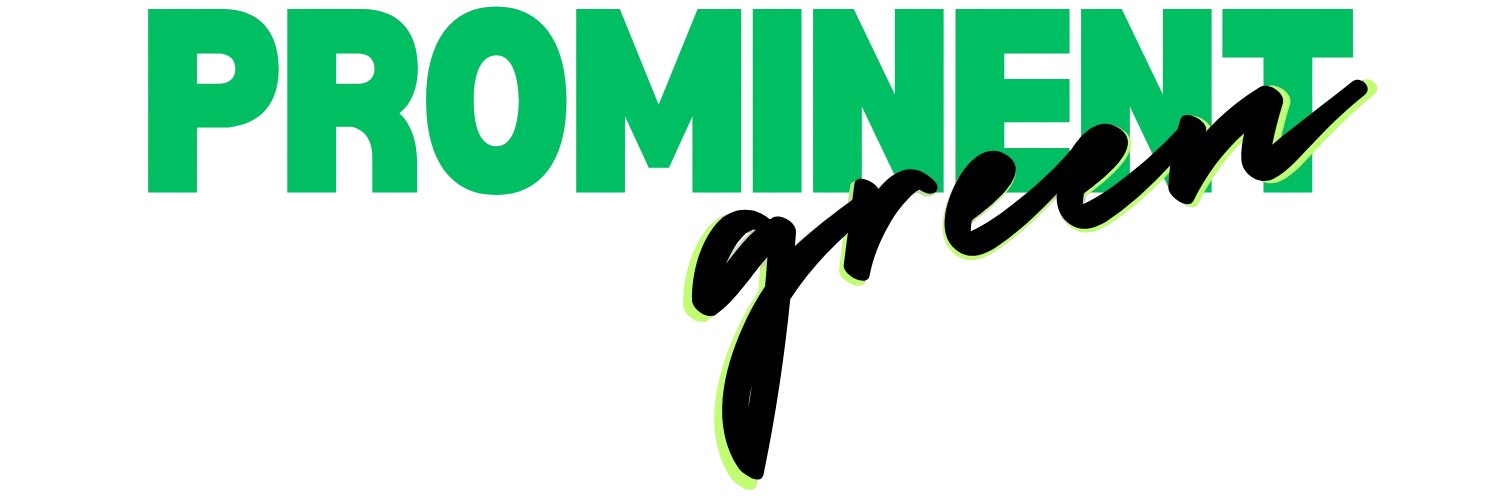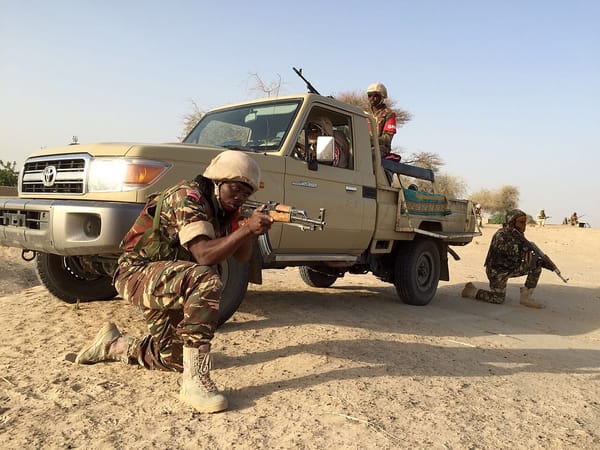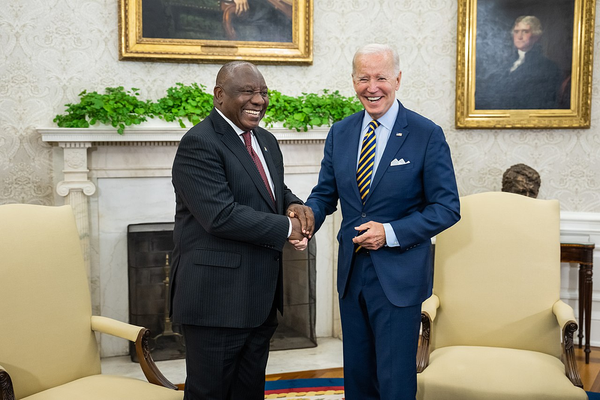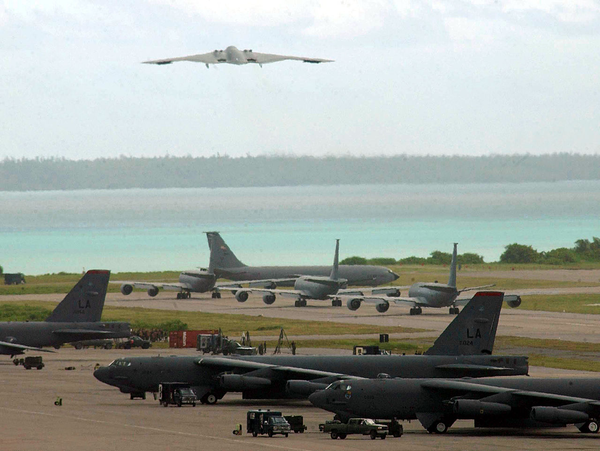President Trump's Second Term. What's At Stake For Africa?
The evolving U.S.-Africa dynamic under Trump’s second term presents challenges and opportunities, underscoring Africa’s need for a proactive approach. African leaders can use their agency to manage these shifts by pursuing partnerships aligning with their countries' national and regional goals.

Donald Trump’s return to the Oval Office has reignited global speculation, especially in African capitals, about the direction of U.S. foreign policy and its impacts on the continent. During his first term, Trump’s “America First” mantra and often dismissive rhetoric toward Africa left many African leaders and experts concerned. Now, with a second term underway, questions abound about whether his administration will stay the course or embrace new priorities. From trade and aid to immigration and geopolitical alignments, Africa may face both challenges and opportunities under Trump’s renewed leadership.
Trade and Investment.

A primary concern for many African leaders is the future of the African Growth and Opportunity Act (AGOA), the cornerstone of U.S.-Africa trade policy. AGOA’s duty-free benefits have allowed many African nations to expand exports to the United States. However, Trump’s scepticism toward multilateral trade arrangements and his past lack of interest in renewing AGOA, set to expire in 2025, stirs unease. This reluctance threatens African economies, particularly South Africa, which has enjoyed extensive benefits under the arrangement. Trump’s potential implementation of a flat 10% income tariff on foreign goods further exacerbates these concerns, as African exports could become less competitive in the U.S. market.
Nevertheless, Trump's policies aimed at curbing China’s influence in Africa, such as the Prosper Africa initiative and the Development Finance Corporation (DFC), may continue. Both programs have sought to increase U.S. investments on the continent, emphasizing opportunities in energy, technology, and infrastructure. While these initiatives attempt to bolster America’s economic footprint in Africa, many observers argue they pale in comparison to China’s investments and do not match Beijing’s portrayal of Africa as a place of promise and growth. Despite this disparity, Trump’s transactional style may appeal to some African leaders, who see it as an avenue to negotiate deals without facing stringent requirements on human rights or governance.
Aid.
Under Trump’s first administration, proposed cuts to foreign aid sparked alarm, particularly among those invested in health, democracy, and security aid to Africa. While Trump’s push to reduce foreign aid faced bipartisan resistance in Congress, shifts in the political landscape with a Republican-majority Senate could make future cuts more feasible. This poses potential threats to crucial programs on the continent, including those addressing health crises, food security, and democratic development.
A high-profile program at risk is the President’s Emergency Plan for AIDS Relief (PEPFAR), which has significantly lowered HIV rates across Africa. However, given Trump’s alignment with Republican lawmakers who allege PEPFAR promotes abortion, the program’s future is uncertain. The potential curtailment of such a vital initiative could reverse years of progress in combating HIV/AIDS on the continent, sparking concerns from health experts and African leaders alike who see U.S. aid as a lifeline for public health.
Immigration.

Immigration remains a thorny issue in Trump’s policy framework, and African migrants in the U.S. are paying close attention. Trump’s hard-line stance includes promises of widespread deportations and restrictions on immigration from specific African nations. During his first term, he imposed immigration limitations on countries like Nigeria, Eritrea, Sudan, and Tanzania, raising alarm in the African diaspora community. Moreover, an increase in African migrants seeking entry at the U.S.-Mexico border suggests a heightened urgency for many to leave home, which Trump’s policies may exacerbate.
The impact on Kenya, a prominent source of migrants, is emblematic of broader African concerns. Trump’s policies and perceived discriminatory stance have left Kenyan and other African migrants wary of navigating U.S. immigration channels. Despite this, some African governments might engage with Trump on migration issues to reach bilateral agreements, recognizing the transactional nature of his approach, which could offer unique opportunities for negotiation despite the broader immigration clampdown.
Geopolitical Relations.
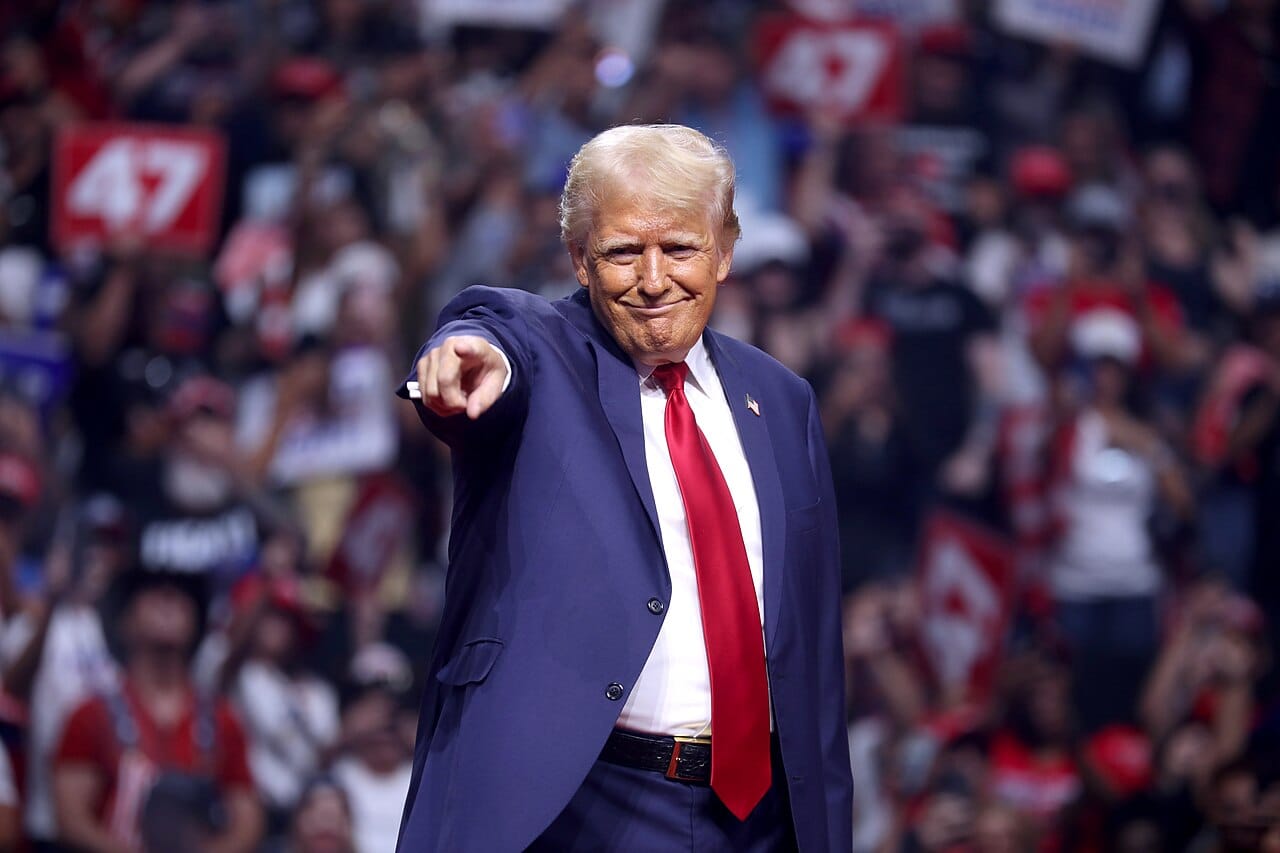
The global power struggle between the U.S., Russia and China has reverberated in Africa, where those countries vie for influence. Russia’s increased military engagement on the continent, particularly through private military contractors, represents a direct challenge to U.S. interests. Yet, with Trump’s notably positive relationship with Vladimir Putin, experts question whether the U.S. will take significant measures to curb Russian activities in Africa. Trump’s foreign policy is generally more reactive, aimed at addressing immediate needs rather than long-term strategic positioning, which may lead to a continuation of selective engagement rather than a comprehensive strategy.
Trump views China as a primary economic and geopolitical competitor and sees its extensive investments in Africa as a direct challenge to U.S. interests. To counter this, he is likely to continue promoting U.S. investment in Africa through initiatives like Prosper Africa and the Development Finance Corporation (DFC), both of which aim to encourage American companies to enter African markets as an alternative to Chinese involvement. However, the U.S. faces considerable challenges in competing with the scale of China’s investments, particularly under China's Belt and Road Initiative, which has established China as a prominent partner for African infrastructure projects. Despite these initiatives, Trump's previous term showed a lack of a clear, cohesive strategy for Africa beyond countering China's influence, raising concerns that this reactive approach may weaken the U.S.'s ability to build sustainable partnerships with African nations.
While some experts doubt that Trump will substantially counter Russian and Chinese activities, his past support for Nigeria’s fight against Boko Haram indicates a potential willingness to step in selectively, especially when U.S. security interests align with those of African partners. However, long-standing conflicts, such as Sudan’s civil war, are unlikely to gain much traction in a Trump-led foreign policy agenda. These complex situations often clash with Trump’s transactional priorities, leaving African nations to confront challenges with limited support from Washington.
Other Factors.
Trump’s previous disregard for human rights and multilateral cooperation raises questions about his engagement with the African Union (AU) and other regional organizations. During his first term, human rights advocacy took a backseat to other priorities, a trend that may persist in his second term. While some African leaders welcome this hands-off approach, fearing fewer interventions in internal affairs, others are cautious. The AU has been instrumental in promoting peace and security on the continent, yet Trump’s focus on unilateral, deal-based diplomacy could undercut these efforts.
Trump’s disinterest in multilateral solutions may weaken Africa’s ability to rally international support for regional initiatives, leaving the AU and individual nations to shoulder the burdens of conflict and humanitarian crises independently. This outlook could place African states in a challenging position, requiring them to navigate Trump’s preferences while preserving their autonomy and addressing their strategic interests.
Conclusion: African Agency Amid Uncertainty.

The evolving U.S.-Africa dynamic under Trump’s second term presents challenges and opportunities, underscoring Africa’s need for a proactive approach. African leaders can use their agency to manage these shifts by pursuing partnerships aligning with their countries' national and regional goals. Africa's agency will be demanded going forward just as Europe's agency, as regards NATO, is being demanded presently. Whether in trade, investment, or security, African nations possess the leverage to negotiate terms that benefit their interests, even within the confines of Trump’s transactional style of geopolitics and international relations.
Rather than passively reacting to U.S. policy changes, Africa has the potential to assert its priorities and seek out new alliances, both within and beyond Washington. The continent’s wealth of natural resources, growing markets, and strategic position afford African leaders ample bargaining power. In this increasingly multipolar world, African countries can define their path, engaging with global powers in ways that bolster sovereignty and foster sustainable development across the continent.
